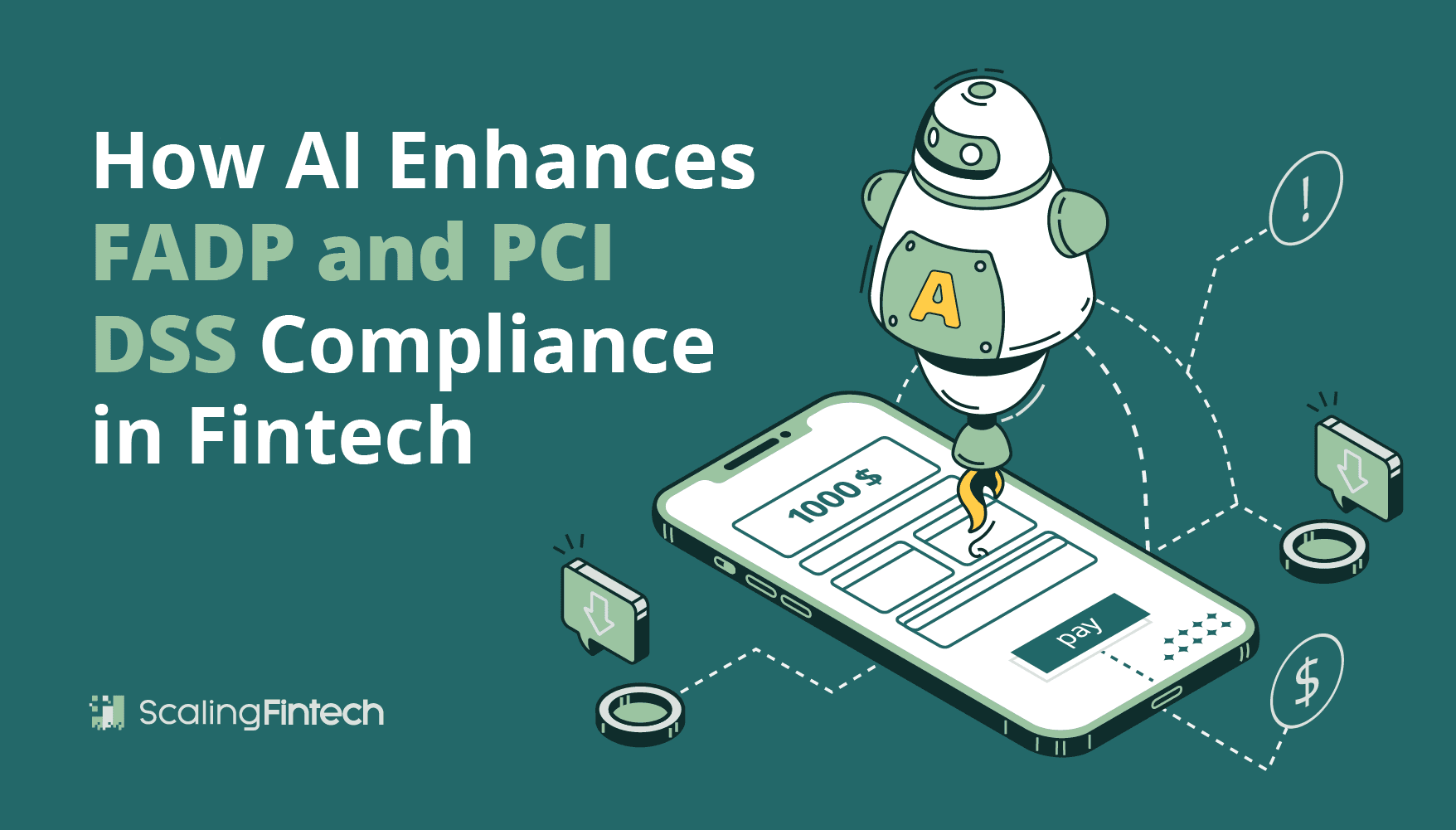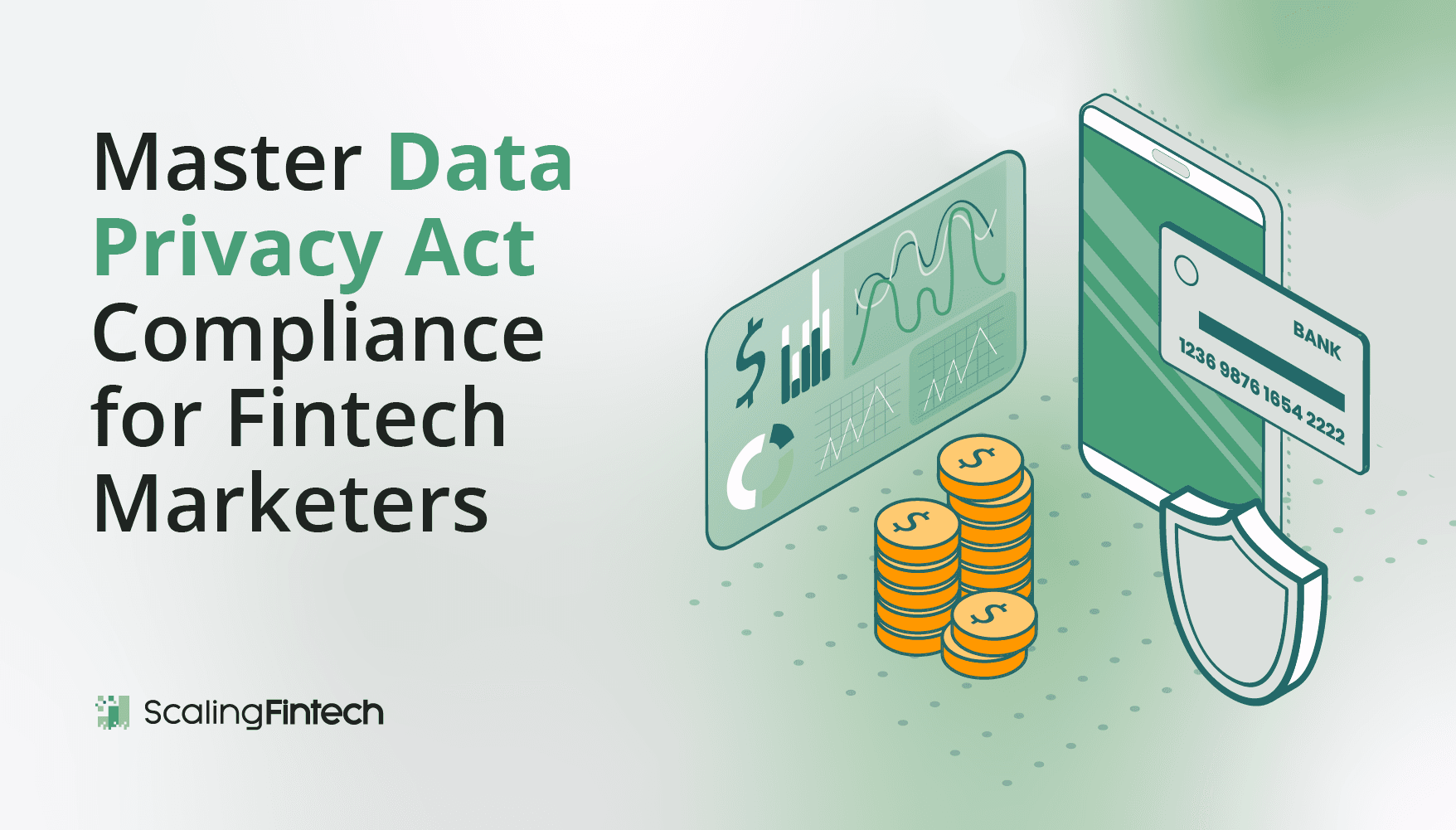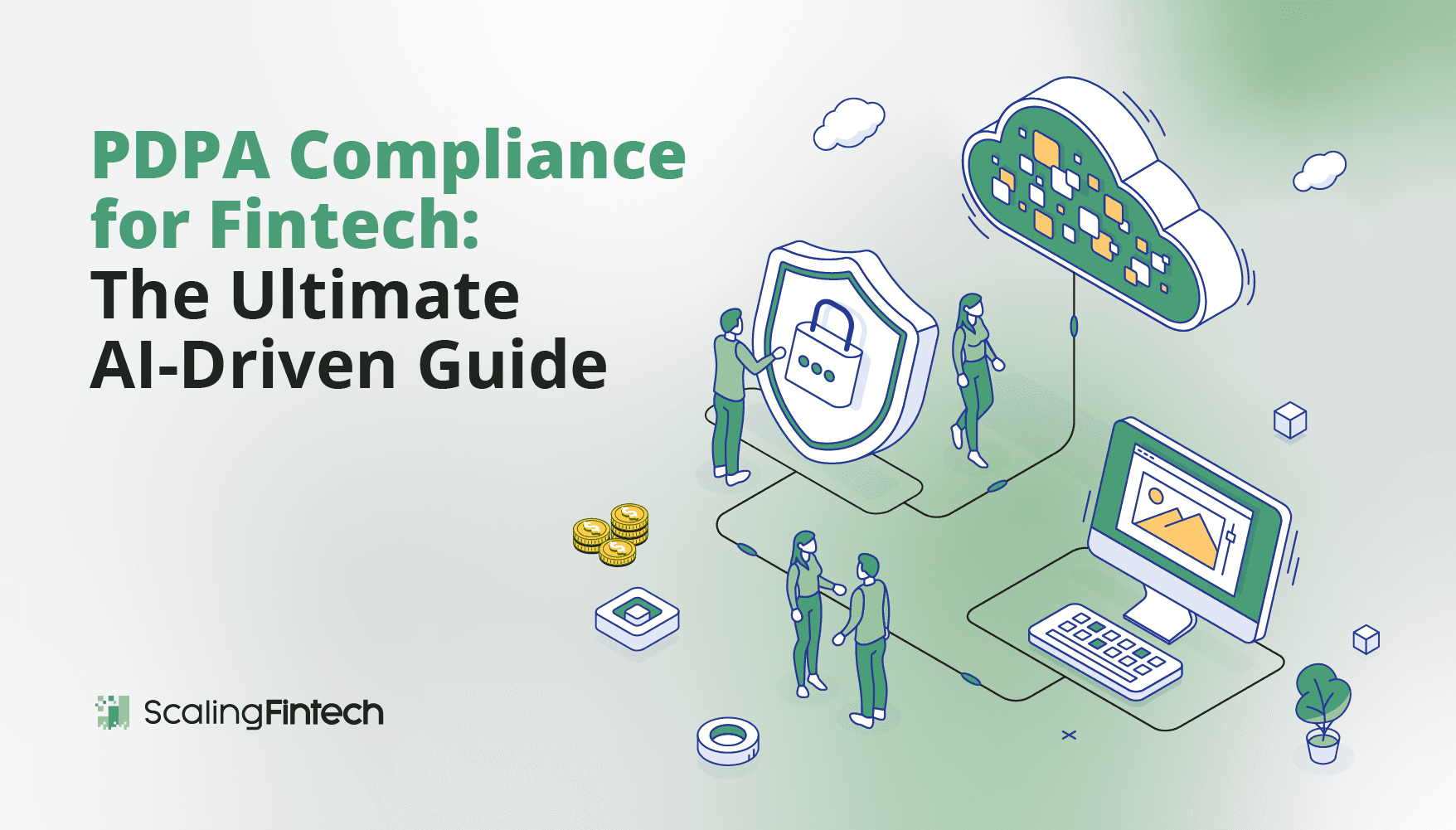Image Source: Scaling Fintech
Learn essential steps to achieve PIPEDA compliance for FinTech. This guide offers practical tips to protect personal information and align marketing with data privacy laws in Canada.
What is PIPEDA and Why Is It Important for FinTech Companies?
PIPEDA, which stands for the Personal Information Protection and Electronic Documents Act, is Canada’s standard for how private organizations collect, use, and disclose personal information during commercial activities. For FinTechs handling sensitive data like banking details, transaction histories, and personal identifiers, compliance with PIPEDA is critical for building trust and avoiding potential fines.
How PIPEDA Affects FinTech Operations
To comply with PIPEDA, FinTech companies must handle personal information responsibly and transparently, ensuring the security of:
- Financial Data: Bank account details, transaction records, and other sensitive information.
- Personally Identifiable Information (PII): Customer names, addresses, phone numbers, and other identifiers.
- Behavioral Data: Information generated from customer activities, purchases, and online interactions.
Example: A Canadian FinTech app that processes loan applications must use privacy notices, secure storage, and limited access permissions to protect financial and personal data. Non-compliance risks include financial loss, customer distrust, and data breaches.

Image Source: Scaling Fintech
The 10 Fair Information Principles of PIPEDA
PIPEDA’s Ten Fair Information Principles act as a roadmap for compliant data handling. Understanding and applying these PIPEDA privacy principles can help FinTech companies protect customer data and build trust. Here’s an overview of the 10 principles of PIPEDA:
- Accountability: Assign a Privacy Officer to oversee compliance.
- Identifying Purposes: Tell customers why you need their personal information upfront.
- Consent: Obtain clear consent for data collection, use, and sharing.
- Limiting Collection: Collect only personal information necessary for the service.
- Limiting Use, Disclosure, and Retention: Use data only for its intended purpose and store it securely.
- Accuracy: Ensure personal information is accurate and up-to-date.
- Safeguards: Secure data with encryption, access controls, and regular audits.
- Openness: Make your privacy practices accessible to users.
- Individual Access: Allow customers to view and update their personal information.
- Challenging Compliance: Provide a way for customers to question your data practices.
Example: A FinTech startup can use these principles to create clear privacy notices that explain data use, security safeguards, and customer rights.
Step-by-Step Guide to Achieving PIPEDA Compliance

Image Source: Scaling Fintech
Achieving PIPEDA compliance requires structured steps across commercial activities. Here’s a clear, actionable PIPEDA compliance checklist:
1. Establish Accountability and Transparency
Assign a Privacy Officer to oversee compliance and make data handling policies clear to customers.
Actionable Tips:
- Designate a Privacy Officer as the main contact for privacy inquiries.
- Publish accessible privacy notices detailing data practices on your website and app.
Example: A mobile payment platform can enhance transparency by making its privacy policy easy to find and updating it annually.
2. Obtain Informed and Explicit Consent
Users must know why their personal information is collected and be able to exercise their right to withdraw consent if desired.
Actionable Tips:
- Use simple language when asking for meaningful consent, especially for sensitive data.
- Enable easy consent withdrawal through account settings.
- Keep a record of when and how consent was given.
Example: If a FinTech platform uses customer data for targeted marketing, it should clearly explain this purpose and offer an opt-out option.
3. Implement Strong Data Protection Measures
Data protection includes encryption, access controls, and regular updates to meet PIPEDA standards.
Actionable Tips:
- Use encryption for personal information in transit and at rest.
- Implement multi-factor authentication to prevent unauthorized access.
- Schedule regular security audits to address vulnerabilities.
Example: A digital wallet app that holds financial information can use multi-factor authentication and limit employee access to encrypted personal data.
4. Enable Customer Access and Control
PIPEDA grants individuals the right to access and correct their personal information. This not only builds trust but also aligns with privacy obligations.
Actionable Tips:
- Provide a secure account portal for data access and updates.
- Respond promptly to data access requests with a structured process.
- Keep records of all data changes for accountability.
Example: A FinTech company offering investment services can enable customers to view their history and update personal details via a secure dashboard.
Building a Strong PIPEDA Compliance Strategy

Creating a robust compliance strategy involves comprehensive planning, from data mapping to employee training. Here are the essential steps:
1. Conduct Data Mapping and Inventory
Identify where and how personal information is collected, processed, stored, and shared to identify risks.
Actionable Tips:
- Document all data collection points, such as forms and payment gateways.
- Track data sharing with third parties and cross-border transfers.
- Define data handling policies, including how and when personal information is deleted.
Example: A loan platform can document each data touchpoint to ensure compliance with retention standards.
2. Develop Comprehensive Privacy Policies
Privacy notices should clarify data handling and help build customer trust.
Actionable Tips:
- Outline consent practices in your policy.
- Include a section on data access requests and response timelines.
- Describe the breach notification process so customers know what to expect.
3. Integrate Privacy by Design
Privacy by Design embeds data protection into every stage of product development.
Actionable Tips:
- Assess new products for privacy risks.
- Minimize personal information collection to necessary data only.
- Set privacy-friendly default settings for customer interactions.
Example: A lending company can use Privacy by Design in its application process to collect only the personal information needed for loan eligibility.
4. Train Employees on Privacy and Security
Regular training reduces the risk of data misuse and helps employees stay informed about privacy obligations.
Actionable Tips:
- Schedule annual training on data handling, PIPEDA principles, and privacy protocols.
- Use real-life scenarios to help employees understand potential challenges.
- Update training materials when regulations change or new features are added.
Leveraging Technology for Compliance Efficiency
Technology can streamline compliance processes and improve accuracy. Here’s how automation tools can help:
1. Data Discovery and Classification Tools
AI-powered tools automatically identify and categorize sensitive personal information, ensuring compliance.
2. Consent Management Platforms
Automate consent tracking with tools that offer features like:
- Real-time consent documentation
- Customizable user preference centers
- Notifications for renewals
3. Privacy Rights Request Automation
Automated systems handle customer requests for data access or correction, reducing manual work.
Scaling FinTech: Your Partner in PIPEDA Compliance
At Scaling FinTech, we empower FinTech companies to achieve rapid, sustainable growth with AI-powered, data-driven advertising solutions. Specializing in B2B campaigns, we focus on enhancing lead generation, conversions, and ROI—all while ensuring strict industry compliance and addressing fintech data privacy concerns.
Why Partner with Scaling FinTech?
- Precision: Our campaigns are tailored to meet each client’s unique growth and compliance goals.
- Transparency: With real-time reporting, you’ll have complete visibility into every campaign’s performance.
- Client-Centric Growth: We design strategies that maximize impact and ROI, putting your growth at the forefront.
Get Started TodayBook a free growth strategy consultation with Scaling FinTech to discover how we can make PIPEDA compliance a powerful competitive advantage.
Conclusion
Achieving PIPEDA compliance is essential for Canadian FinTech companies, not only for regulatory reasons but also as a foundation for sustainable growth and customer trust.
By focusing on personal information protection, meaningful consent, and customer privacy rights, FinTechs can turn compliance into a competitive edge. Scaling Fintech’s AI-powered, data-driven paid advertising strategies support compliance efforts, making it easier to build trust and fuel growth.
Key Takeaways:
- Prioritize Data Security: Implement robust security safeguards, such as encryption and access controls, to protect sensitive personal information.
- Obtain Clear Consent: Ensure transparent and straightforward consent processes that give customers control over their data, including the right to withdraw consent.
- Maintain Customer Access: Provide easy-to-use portals where customers can view, update, or request changes to their personal information.
- Use Technology for Efficiency: Leverage AI-powered tools for privacy automation, making PIPEDA management easier and more accurate.
Start Your Compliance Journey with Scaling Fintech Contact us today to discover how a compliance-first approach can empower your FinTech to grow responsibly and rapidly while adhering to data protection laws in Canada.




